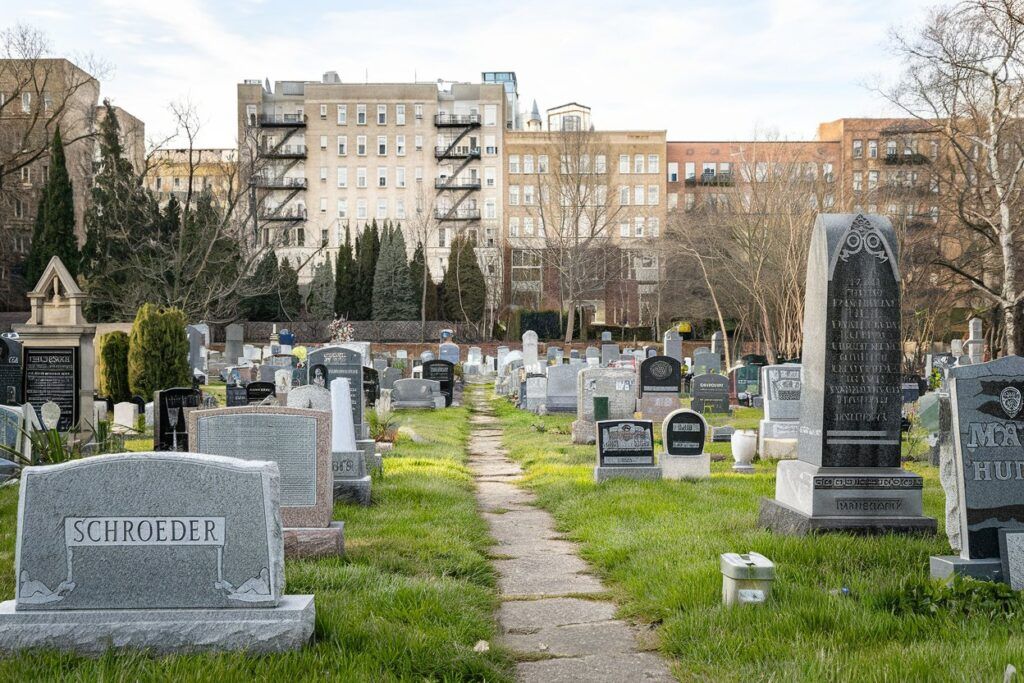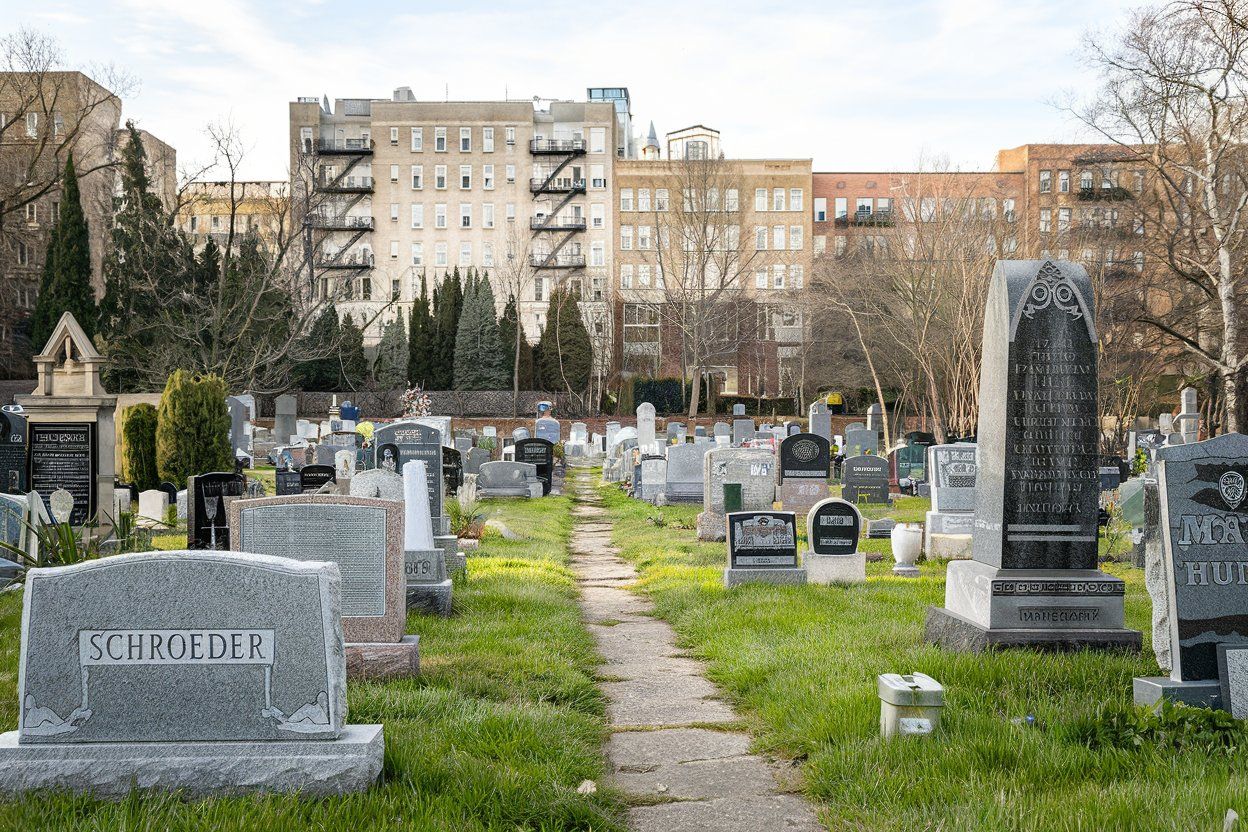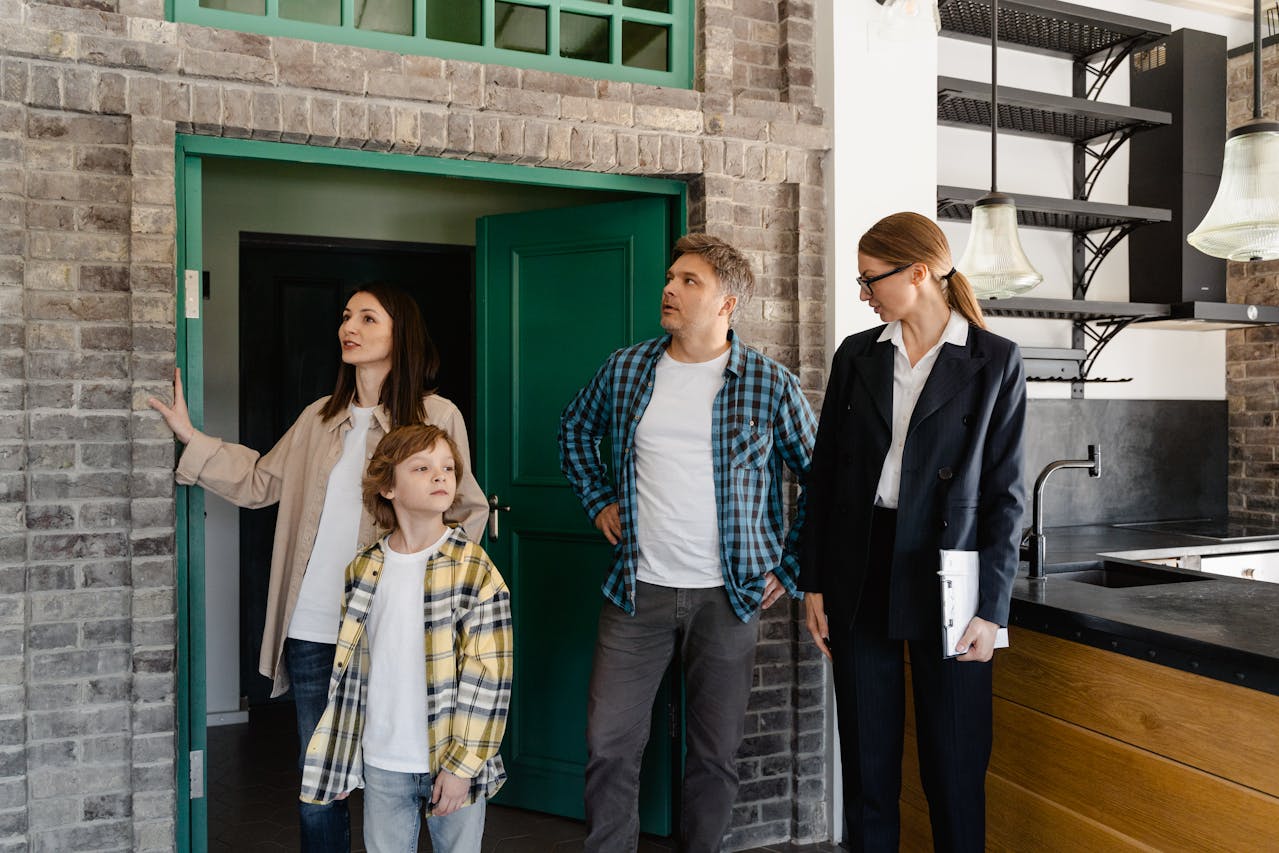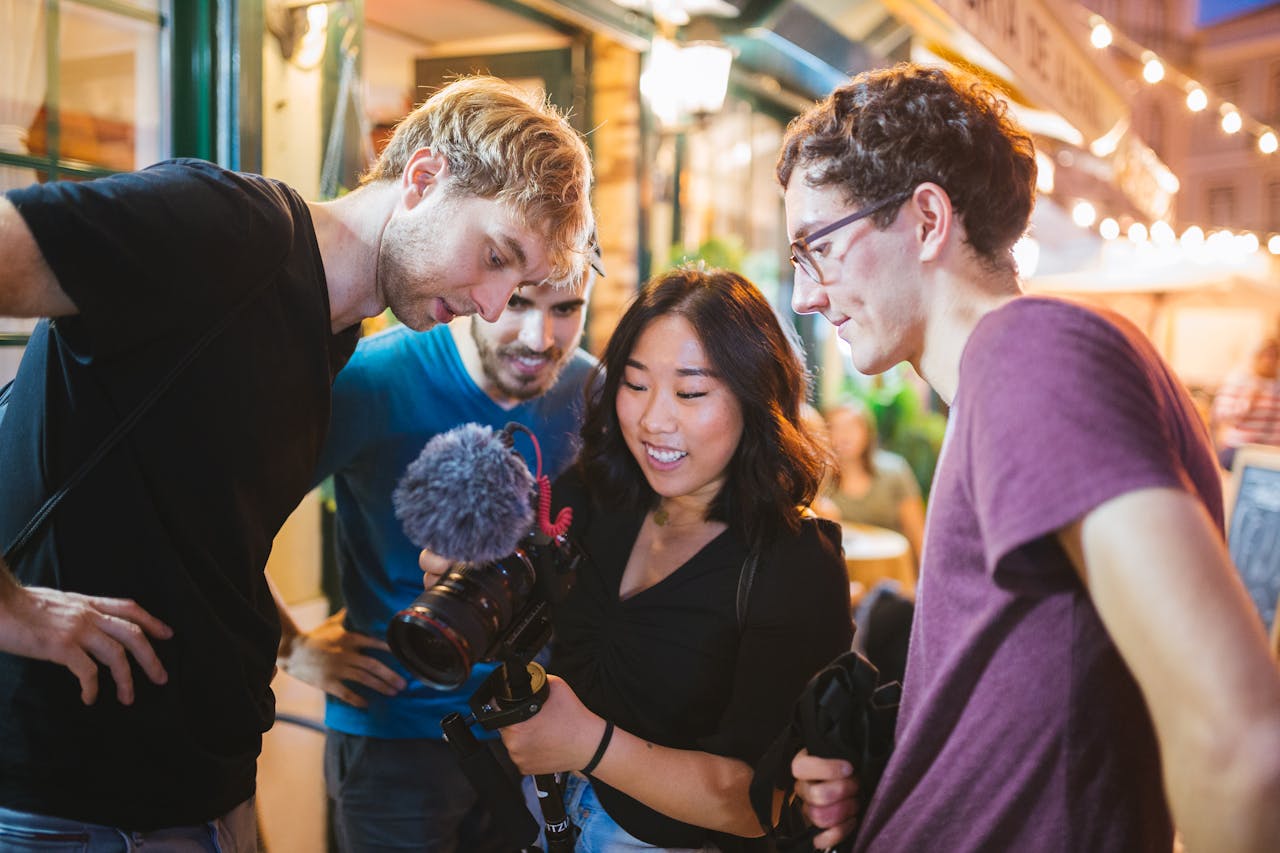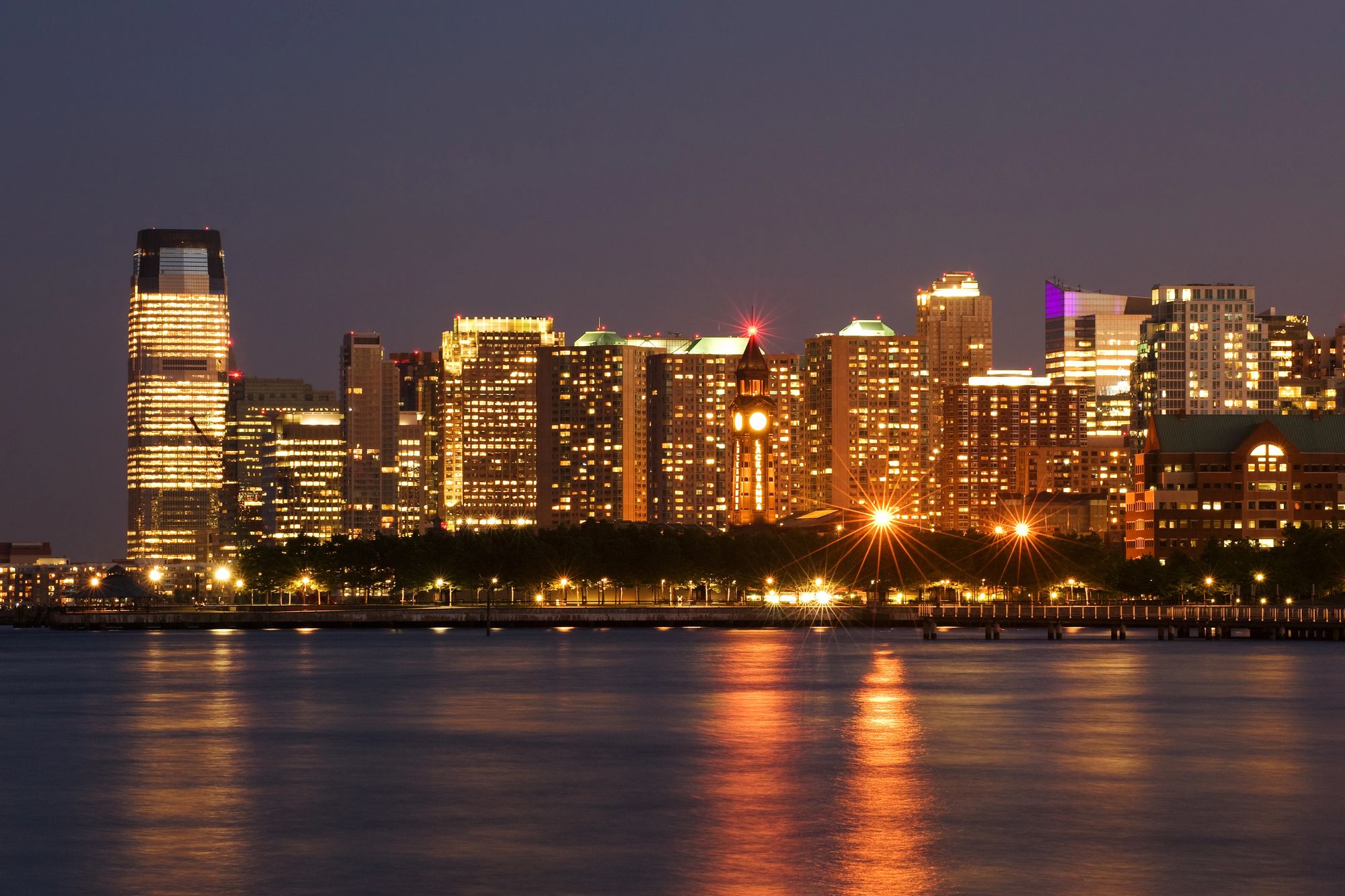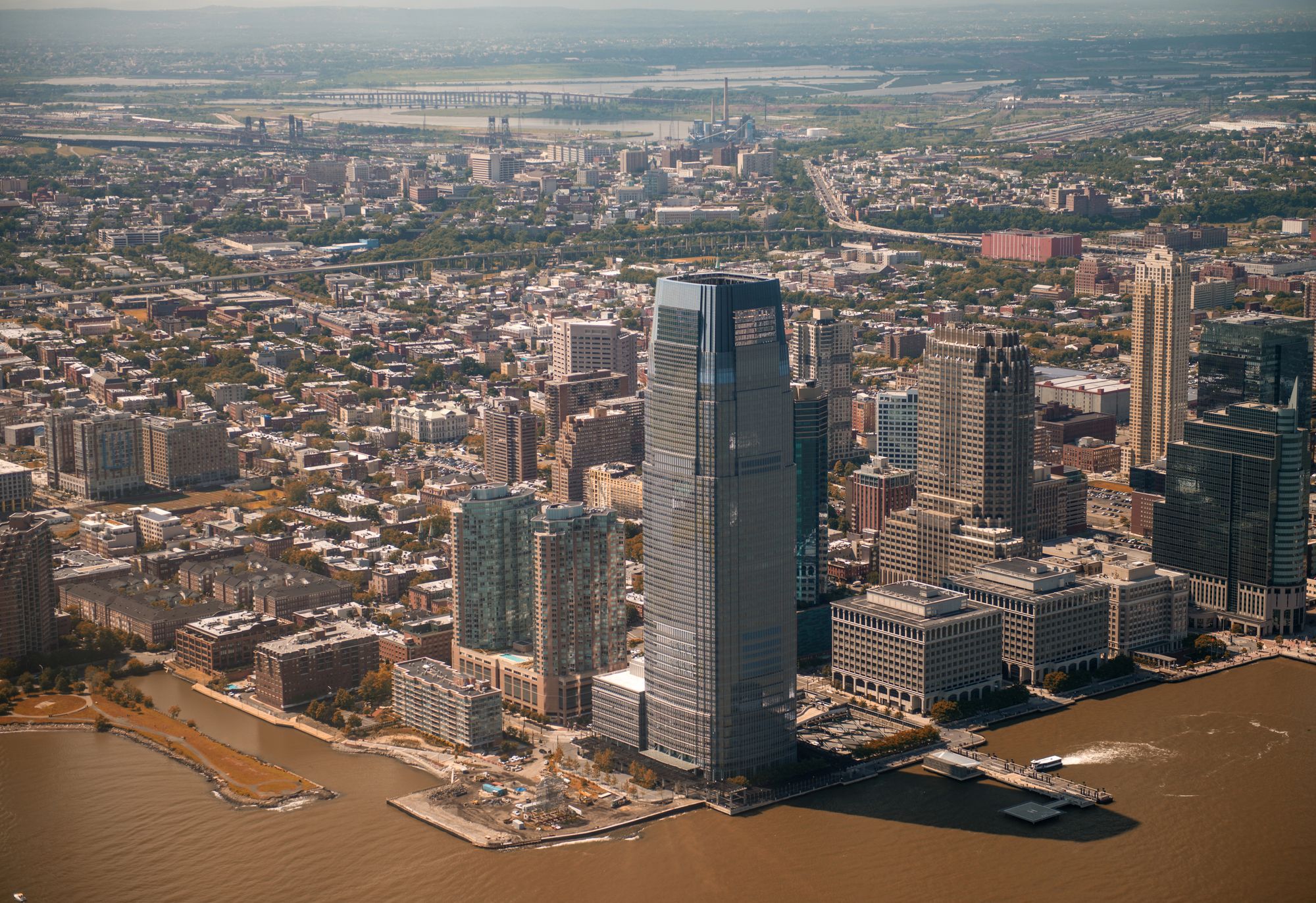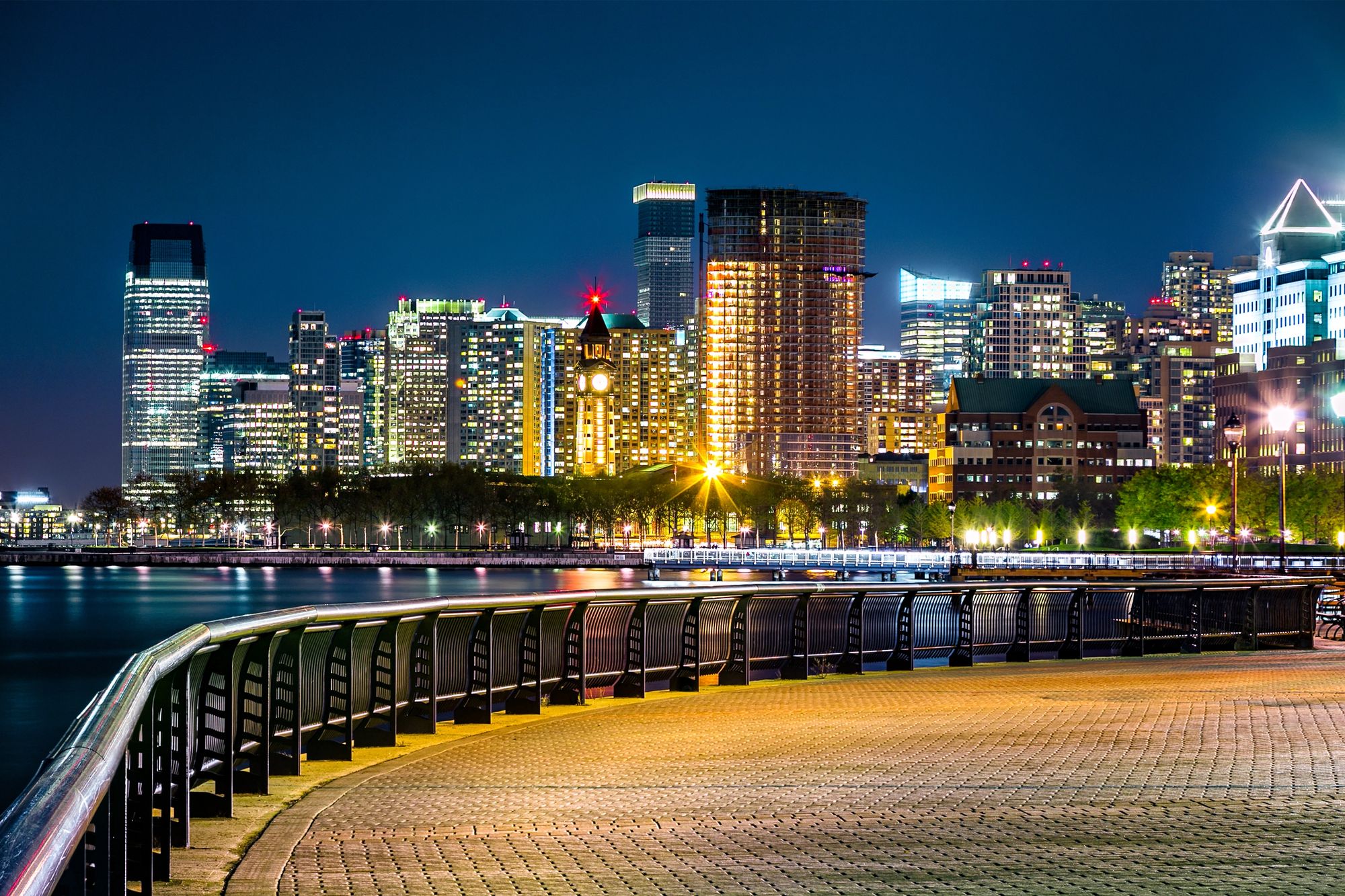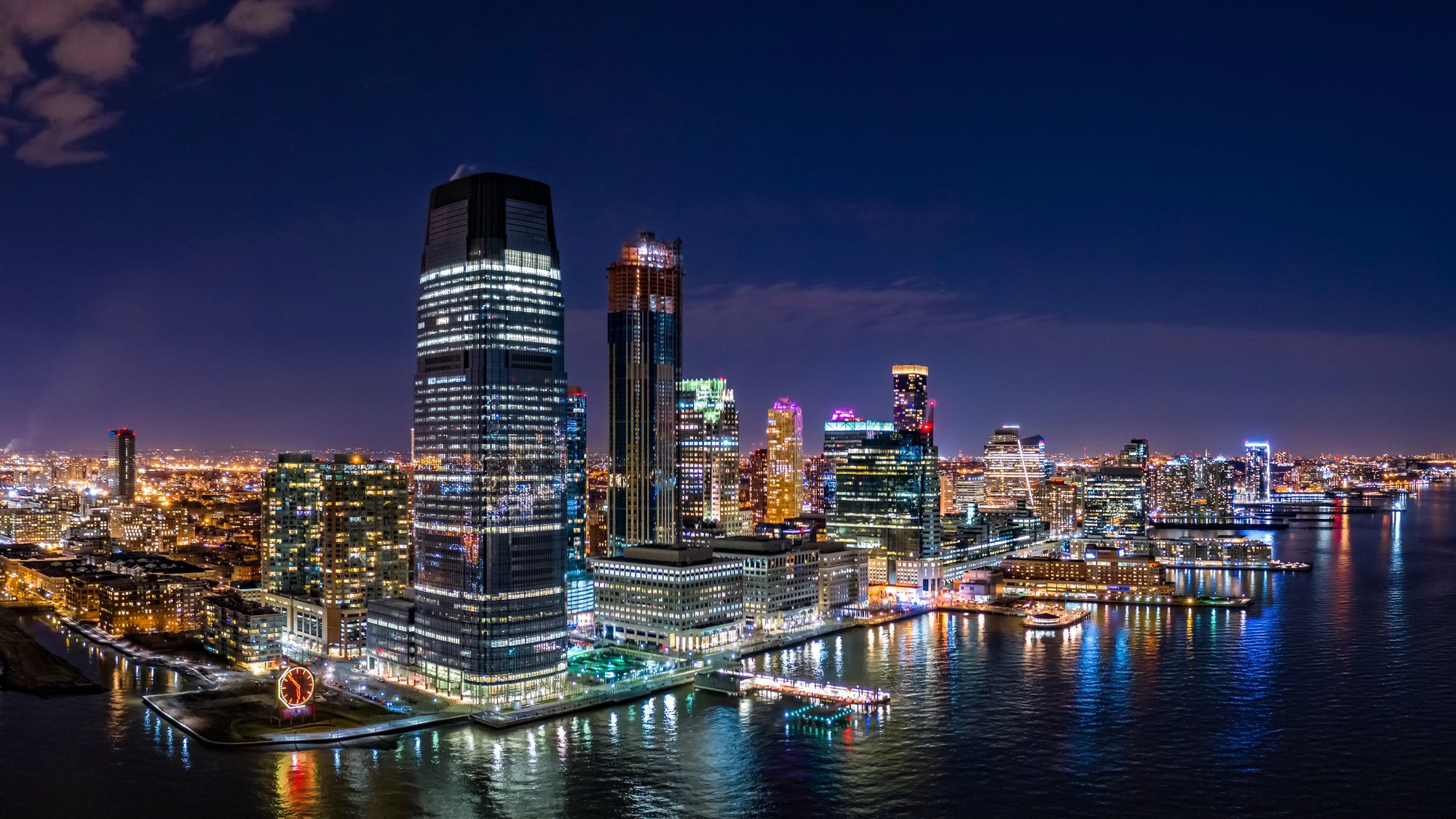Take a step back in time with The Jersey City Old Timey Tour, and let the city’s rich past surprise you. As you wander these streets, you’ll stumble upon stories and secrets even locals might not know. The Jersey City Old Timey Tour leads you to hidden landmarks, architectural treasures, and cultural sites that reveal how this city grew from a tiny settlement into today’s diverse urban hub.
You’ll kick things off in Jersey City Heights, where historic buildings still stand tall, echoing earlier eras. The tour gives you sweeping views of the Manhattan skyline and the Statue of Liberty—prime spots for photos—while your guide spins some pretty fascinating tales. Unlike the usual touristy crowds, this tour feels more personal and gives you a real connection to Jersey City’s heritage.
Easy booking across hundreds of accommodations from luxury high-rises to unearthed brownstone treasures.
Browse Accommodations Now
You’ll find a mix of well-known sites and hidden gems only locals seem to know about. Old jazz clubs, historic neighborhoods, and architectural marvels pop up along the way, each telling a different story about immigration and growth. Whether you’re a history nerd, an architecture buff, or just plain curious about Jersey City, there’s honestly something here for you.
Overview of The Jersey City Old Timey Tour
This tour winds you through Jersey City’s historic districts, highlighting landmark buildings and cultural sites that bring the city’s past to life.
What Makes This Tour Unique
This walking tour stands out because it focuses on the city’s lesser-known historical gems, not just the usual hotspots. You’ll wander through the Historic Downtown, where buildings from the 1800s still stand.
Guides show up in period costumes, which honestly makes the stories feel a bit more real. They’ll let you into select historic buildings that usually stay closed to the public—how cool is that?
With small groups (no more than 12 people), you actually get to hear every detail and ask whatever pops into your head. The route weaves through hidden alleys and sneaky viewpoints, giving you angles on the Manhattan skyline most tourists never see.
Tour Duration and Accessibility
Expect to spend about 2.5 hours covering roughly 1.5 miles at a relaxed pace. You’ll want comfy shoes, but don’t sweat it—the route skips steep hills and tough terrain.
There are built-in rest stops, with 3 or 4 breaks at local spots where you can grab a seat and enjoy some complimentary refreshments.
Most folks can handle the walk, and there are alternative routes for anyone with mobility challenges. Wheelchair users can join in too, since the path sticks to accessible sidewalks and ramps.
Tours run Tuesday through Sunday, with morning (10 AM) and afternoon (2 PM) options. If you’re around in the summer (June-August), you can catch a 6 PM sunset tour—those evening views of the Hudson River and Manhattan are something else.
Historical Landmarks on the Route
You’ll pass by architectural gems that really show off Jersey City’s history and culture. These buildings tell stories of healthcare, community, and some pretty bold design choices.
Jersey City Medical Center
The Jersey City Medical Center grabs your attention with its Art Deco style. Built in the 1930s as a huge WPA project, the complex originally had 10 buildings designed by Christian H. Ziegler.
You’ll spot the stepped shapes and geometric patterns that scream Art Deco. The Medical Center served as the city’s main public hospital for decades.
Now, most of it has become The Beacon, a residential community that keeps the historic facades but updates the interiors. It’s actually one of the largest historic building restorations in the country.
You can still see the original terrazzo floors and brass details in many spots. And from the hilltop, the Manhattan skyline looks incredible.
Margaret Hague Maternity Hospital
Once the pride of Jersey City’s medical scene, the Margaret Hague Maternity Hospital opened in 1931 as part of the Medical Center. Mayor Frank Hague named it after his mother.
Over 350,000 babies were born here, including Martha Stewart and former New Jersey Governor Jim McGreevey.
The 10-story building is loaded with Art Deco details. If you look closely, you’ll notice decorative motifs of mothers and children on the facade.
After closing as a hospital in 1979, the building sat empty for years. Recently, developers converted it into luxury apartments but preserved a lot of the historic elements.
You can still find original marble work and restored decorative touches—they really kept the building’s character intact.
Barrow Mansion
The Barrow Mansion drops you right into Jersey City’s 19th-century scene. Built around 1837 in the Greek Revival style, this place has massive columns and a grand portico.
Inside, you’ll spot period details like original woodwork and marble fireplaces. Cornelius Van Vorst, a wealthy landowner and former mayor, built the mansion.
These days, the Barrow Mansion acts as a community center and home to several nonprofits. They host all sorts of events, performances, and gatherings throughout the year.
The restoration kept much of the historic vibe while making it useful for today. There’s even a lovely garden where you can find a little peace in the city. Guided tours happen often if you want to dig deeper into its history.
Find available hotels and vacation homes instantly. No fees, best rates guaranteed!
Check Availability Now
Downtown Sights and Neighborhood Highlights
Downtown Jersey City is honestly a mashup of old and new—historic architecture, modern art, and cultural landmarks all packed together. It’s got old-world charm, but there’s always something contemporary peeking through.
Architectural Gems
The downtown skyline mixes historic and modern buildings in a way that’s hard to miss. The Powerhouse Arts District has beautiful industrial buildings from the early 1900s. Back then, they powered railroads; now, they house art studios and trendy lofts.
The Landmark Loew’s Jersey Theatre on Journal Square is pure 1920s movie palace. Its ornate facade and grand interior feel like a trip back in time.
As you walk, you’ll notice restored brownstones sitting next to sleek glass towers. Many old facades remain, with modern buildings rising behind them—it’s a unique look.
Definitely check out the Colgate Clock by the waterfront. At 50 feet across, it’s been a city landmark since 1924.
Local Art Installations
Public art really brightens up downtown’s streets and parks. The Jersey City Mural Arts Program fills blank walls with colorful murals.
You’ll find creative sculptures too. The “Water’s Soul” installation at the waterfront—a huge white face with a finger to its lips—kind of invites you to pause and reflect.
Street art pops up everywhere, with new pieces showing up all the time. Artists use everything from spray paint to mosaic tiles to make their mark.
The HDSID Art Walk is a self-guided tour that takes you past galleries, studios, and outdoor installations.
Seasonal festivals crank up the creativity even more. The Jersey City Art Fair draws artists and art lovers from all over.
Historic Downtown Attractions
The Central Railroad of New Jersey Terminal reminds you of the city’s transportation roots. This Romanesque building used to welcome thousands of immigrants and commuters every day. Now, you can check out its restored waiting room and learn about its history.
Flag Plaza celebrates Jersey City’s diversity with flags from countries around the world—a colorful nod to the city’s multicultural roots.
The Hudson and Manhattan Railroad Powerhouse, with its smokestacks, is waiting for redevelopment. Plans are in the works to turn it into a cultural center.
Grove Street’s historic district is full of well-preserved 19th-century buildings. Walking here feels like time-travel back to Jersey City’s early urban days.
The Jersey City Museum showcases collections that trace the area’s journey from Dutch settlement to modern metropolis.
Cultural Events and Community
Jersey City’s vibrant cultural scene really shines on the Old Timey Tour. The route connects you to both the city’s history and its living, breathing arts community.
Works Progress Administration Legacy
You can still see the WPA’s mark all over Jersey City. Back in the 1930s, this Depression-era program put local artists and craftspeople to work on public projects that still give the city character.
You’ll spot WPA murals in several buildings—scenes of shipbuilders, factory workers, and immigrant families who built Jersey City. These colorful pieces tell stories you won’t find in textbooks.
The tour points out WPA-built infrastructure too. Check out the distinctive stonework in parks and public buildings. These projects didn’t just provide jobs—they created community spaces people still use today.
Keep an eye out for WPA plaques. Each one is a little reminder of the city’s resilience and creativity during tough times.
Art and Music Along the Tour
Jersey City’s art scene is everywhere along the Old Timey Tour. Murals turn ordinary walls into eye-popping canvases.
You might catch street performers—musicians, dancers, and artists—especially when the weather’s nice. They add a spontaneous vibe as you explore.
The tour passes a few galleries with rotating exhibits from local artists. Many are free to enter, so you can pop in and get a taste of the city’s creative energy.
Special events liven things up even more. If you’re lucky, your visit might line up with something like JCAST (Jersey City Art and Studio Tour) or Summer in the City performances.
Public art installations are everywhere, offering great photo ops. Each piece reflects Jersey City’s diversity and forward-thinking spirit.
Luxury stays to cozy apartments await, all with instant booking. Find the best deals!
Browse Jersey City Stays
Jersey City in American History
Jersey City has played a big part in American history, especially with transportation and military support. The city’s location made it crucial for moving goods and helping out during wartime.
World War I Connections
During World War I, Jersey City turned into a major shipping hub. Troops and supplies shipped out from its waterfront, headed for Europe. The place buzzed with activity as soldiers left for the front.
The Black Tom explosion of 1916 stands out as a wild chapter—German agents blew up munitions that were supposed to go to the Allies. The blast was so powerful, people felt it as far as Times Square, and it even damaged the Statue of Liberty’s torch.
Local factories switched over to wartime production, churning out uniforms and vehicle parts. Residents pitched in with Liberty Bond drives and volunteered with the Red Cross.
The Morris Canal’s Role
The Morris Canal helped turn Jersey City into a transportation powerhouse in the 1800s. Finished in 1831, it linked the Delaware and Hudson Rivers, letting coal and goods move smoothly across New Jersey.
You can still find traces of the canal if you know where to look. Instead of traditional locks, the canal used water-powered inclined planes—a pretty clever trick for the time.
The canal’s end point in Jersey City became a busy commercial area, where goods transferred to ships bound for New York and beyond. This hub helped the city grow from a small town into an industrial giant.
The canal shut down in 1924, thanks to trucks and trains. These days, some of the old route is preserved as greenways—perfect for a walk through history.
Iconic Views and Nearby Attractions
Jersey City serves up some amazing views and photo-worthy spots that show off the metro area’s beauty. The Old Timey Tour stops at several places where you can snap memorable shots and soak in the scenery.
Statue of Liberty Vistas
You’ll get some of the best views of the Statue of Liberty from Jersey City’s unique vantage points. Along the way, you’ll find ideal spots to frame Lady Liberty against the harbor.
Liberty State Park is a real highlight. From here, you see the statue in all its glory—without the Liberty Island crowds.
A lot of visitors are surprised that Jersey City actually offers clearer views of the statue than many Manhattan spots. The waterfront part of the tour is perfect for those classic, postcard-worthy photos.
Best Times for Views:
- Early morning (fewer crowds, softer light)
- Sunset (dramatic silhouettes)
- Clear winter days (exceptional visibility)
Scenic Walking Paths
The Old Timey Tour takes you along some truly beautiful walking paths that highlight both Jersey City’s natural charm and its lively, urban side. The Hudson River Waterfront Walkway shows off sweeping views of the Manhattan skyline—honestly, it’s hard not to stop and stare.
You’ll wander through the historic Powerhouse Arts District, where old industrial buildings sit right next to bold, modern art. Most of these routes stay pretty flat, so almost anyone can manage them.
These paths link up major landmarks, but they also sneak in a few surprises—small parks and tucked-away gardens where you can catch your breath for a bit.
Walking Path Highlights:
- Morris Canal Park (waterfront views)
- Hamilton Park (historic district surroundings)
- Newark Avenue pedestrian plaza (vibrant city atmosphere)
Most paths stay in good shape, and you’ll spot plaques along the way that share bits of local history and architecture.
Tour Planning and Visitor Tips
If you want to get the most out of your Jersey City Old Timey Tour, a little planning goes a long way. Here are a few tips that’ll help you enjoy the city’s history without any hassle.
Best Times to Visit
Spring (April-June) and fall (September-October) are usually the best times for the tour. Temperatures hover between 60-75°F—pretty much perfect for exploring historic streets on foot.
If you can swing a weekday morning (Tuesday-Thursday), you’ll probably end up in a smaller group. That means there’s more space to chat with your guide and ask questions. Weekends get busy, so if that’s your only option, try to book at least two weeks ahead.
July and August? Honestly, the humidity can get rough. Winter tours do run, but heavy snow can throw things off, and some old buildings cut their hours in colder months.
Plan Your Stay in Jersey City, NJ to line up your tour with other fun stuff in the area.
Competition With Other Tours
The Jersey City Old Timey Tour really carves out its own niche by diving deep into Victorian-era history and architecture. Other options, like the “Jersey City Culture Tour,” tend to cover a wider range of topics and more recent developments.
At $25, the Old Timey Tour lands right in the middle—cheaper than the premium Historical Walking Tour ($35), but a bit pricier than the Heights Walking Tour ($15).
What sets this one apart? The guides show up in period costumes, and you actually get to step inside three historic homes that aren’t open to just anyone.
And here’s another plus: while other tours might squeeze in 20 or more people, the Old Timey Tour caps groups at 12. That makes it easier to hear the stories, ask questions, and actually feel like you’re part of the experience.
What to Bring
Essential Items:
- Comfortable walking shoes (expect to cover about 1.5 miles)
- Clothes that fit the weather—layers usually work best
- Water bottle (you can refill at two stops)
- Camera or your phone for snapping photos
- Some cash for those little things at historic shops
Optional but Helpful:
Find the perfect hotel or vacation rental. Instant booking, no fees!
View Top Stays
- A small notebook if you like jotting down fun facts
- Light backpack to stash your stuff
- Hat and sunscreen, especially if it’s sunny
- Portable phone charger—just in case
Try to keep your bag light since you’ll be walking for 2-3 hours. The tour gives out handouts with maps and history tidbits, so you really don’t need to bring extra materials.
Getting Around Jersey City might help you figure out transportation to the tour’s meeting spot.

